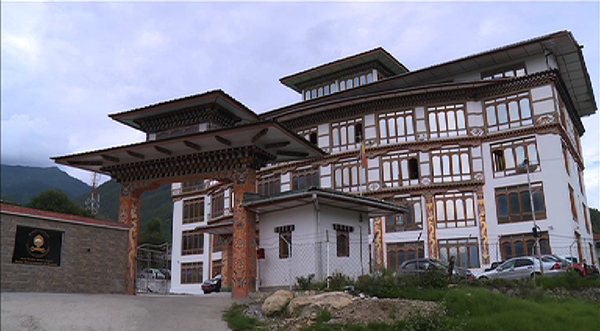 Justice delayed is justice denied. This popular perception of court delay reinforced by assumptions that it is for rich and powerful people is widely held amongst people. Therefore, delay in trial’s prosecution and a court’s system in Bhutan has received a lot of attention, both from poor and rich, young and old. On the other hand, talking to the Office of the Attorney General (OAG), the office as a constitutional body has a few plans to bring changes in these systematic issues to fast track service delivery and prosecution of cases.
Justice delayed is justice denied. This popular perception of court delay reinforced by assumptions that it is for rich and powerful people is widely held amongst people. Therefore, delay in trial’s prosecution and a court’s system in Bhutan has received a lot of attention, both from poor and rich, young and old. On the other hand, talking to the Office of the Attorney General (OAG), the office as a constitutional body has a few plans to bring changes in these systematic issues to fast track service delivery and prosecution of cases.
Today, the office of Attorney General is reviewing 55 cases. While the number is not very significant, people are questioning the delay in taking cases to court.
“The pendency of the court should be looked as a right to access to justice that errors are minimised and at the end, the result is that anyone, any citizen, should avail Equal Justice under the law and what is due in accordance with the law,” said Lungten Dubgyur, the Attorney General.
The office is in the process of reviewing and developing the Rules of Procedure for Prosecution and Litigation 2018 to further streamline the process.
“We are developing a handbook for the prosecutors, and the next agenda is a major reform. There we will have all the time limits and how long should the prosecutors take to file a case before the court,” he added.
The office has embarked on reforms toward the standardisation of criminal prosecutions to address the accumulation of cases resulting from cases of trivial nature. As per the Attorney General, the prosecution must duly consider the overall economic, social and financial burden to the state and public interest:
“What happens in the court is that there is a huge expense involved, for instance, the OAG for the past references is that to recover recoveries of Nu 2000, (like for the mileage, TA/DA), he goes to Samtse, attend court hearings and complete all the formalities of under criminal proceedings and then the amount spend by the state would be not less than Nu 78,000.”
Understanding this kind of systematic issues and error, the Office of the Attorney General now expects to address those systems.
Samten Dolkar





